- Home
- Rick Mofina
The Panic Zone Page 11
The Panic Zone Read online
Page 11
As Pedro spoke to Bruna, there was a burst of shouting outside and the sound of people running near the house. It lasted a few seconds then Bruna turned to Gannon.
“He says you can look at anything, but be respectful.”
Gannon and Bruna immersed themselves in Maria’s files, which were all in Portuguese, spreading them out on the desk, floor and bed. Items on the dresser began ticking from the vibrations of loud hip-hop music pounding from someone’s sound system nearby.
Bruna raised her voice a bit as she translated excerpts of reports, studies and news clippings on human rights, child labor, human smuggling, environmental issues, police corruption, religious and political persecution.
Gannon noticed something: A low side drawer on the desk had a very slender sleeve inside holding a leather-bound notebook. He opened it to pages filled with dates and notes written in longhand in Portuguese.
A diary.
Outside, the music’s volume increased, and Gannon never heard the front door latch click over its menacing throb, never heard the living room floor creak as the house filled with people.
Gannon had passed Maria’s journal to Bruna and she was reading over the entries for the last three days of Maria’s life.
“I have located the documents the law firm thought it had destroyed. It proves what we have suspected. I have copied the thirteen pages and shared them with SK at the center.” Bruna paused.
Gannon held up his hand before he reached into his back pocket and unfolded the documents he’d found near the bomb scene. He had pages two, five and nine. There were thirteen in all. He needed to see all of them.
Who was SK at the center? What center?
As Gannon nodded for Bruna to resume, “We agree we must go to the press with these records—” he noticed a flash in the mirror, a diffusion of light “—I will contact the WPA and give the documents to a journalist—”
Music hammered the air, and in a heartbeat Gannon turned to glimpse Pedro and Fatima held at gunpoint by people—a dozen, maybe more—brandishing automatic guns, their faces covered with bandannas.
Without warning Gannon’s head was swallowed by a large black hood.
His head exploded into a starburst of sudden pain.
22
Gannon was drowning.
Oh, Christ!
He couldn’t breathe. He couldn’t see. His head was wrapped in cloth and held underwater. His lungs were splitting, he struggled but his hands were bound behind his back.
God, please!
Mercifully, his head was pulled up. As he choked on air, he was tossed onto a mattress in a darkened room.
Who was doing this? Why? Where was he?
Someone jerked him upright, yanked the cloth hood from his head. Blinding light burned his face and a voice he didn’t recognize mocked him in accented English from the darkness.
“Jack Gannon, reporter, World Press Alliance, New York.”
Gannon coughed.
“Your card identifies you as an American reporter. Is this true?”
Gannon said nothing, then a fist smashed the side of his head. He tasted blood, gritted his teeth and was pulled to his feet.
“Answer! You are an American reporter?”
“Yes.”
“You lie. You work for police. You’re here to frame us for the bombing!”
“No, I don’t know who you are. I’ve come to learn about Maria Santo.”
A knee flattened Gannon’s groin. Lightning flashed in his eyes, and he doubled over, groaning in agony.
Gannon wheezed, “You’re making a mistake.”
“There is no mistake.”
The man barked in Portuguese. A small video player was shoved into Gannon’s face. He blinked, his eyes adjusting to the light.
It was a TV news report of him talking to Detective Roberto Estralla beyond the yellow tape at the crime scene of the attack on the Café Amaldo. The report cut to Gannon close up. The video player vanished, then newspapers were thrust before him, a flashlight haloed on the photograph of him taken with Estralla at the scene.
“Did you think you could walk into our turf and plant evidence in the home of Maria Santo?”
“No. No, you don’t understand,” Gannon said.
“We are going to send a message to your police friends that we had nothing to do with the bombing.”
A chrome-plated revolver materialized. Gannon’s captor spun its cylinder, showing the empty chambers, then he held up a bullet before sliding it into one of the chambers. He spun the cylinder then clicked it into the frame.
“Don’t. Please.”
The barrel was drilled into Gannon’s mouth, he tasted metal.
“Our message will be written on your corpse.”
Gannon’s stomach heaved, a finger squeezed the trigger. As it went back, he shut his eyes.
God help me.
Click.
Empty chamber.
Laughter filled the room.
The gun was removed, Gannon’s heart nearly burst.
“So you live a little longer. Spend the last moments of your life dreaming of your execution.”
A sudden blow to his head sent Gannon falling to the mattress and falling back through his life….
He is ten years old in the Buffalo Public Library where his big sister Cora is telling him he must read books because he’s going to be a writer…I see it in your eyes, you don’t give up…his mother, the waitress, in her white apron…his father in the rope factory, his blistered hands…his mother sobbing…they’ve lost Cora to drugs…she’s run off…they can’t find her for years…he resents Cora for the pain she’s caused…he loves Cora for his life follows the course she envisioned…he’s a news reporter with the Buffalo Sentinel…he meets Lisa Newsome on assignment from the Cleveland Plain Dealer…Lisa wants to get married and have kids…he could be cutting his lawn in suburbia, taking the kids to the mall…not him…he breaks Lisa’s heart…ghosts will haunt you…his parents keep looking for Cora…she may have children…she may have a new life…what became of Cora?… A New York State Trooper, standing at his apartment, hat in hand…a pickup driven by a drunk driver has smashed into his parents’ Ford Taurus, killing them both…he aches to get out of Buffalo but is afraid to leave…. ghosts…nominated for a Pulitzer…for convincing the brother of the suicidal Russian airline pilot who plunged his jet into Lake Erie to talk…think of the dead, their ghosts will haunt you…he got what he wanted…Buffalo behind him…working for the World Press Alliance…wasn’t that what he wanted?… No one to mourn him…he was alone… Wasn’t that what he wanted?… To die in the slums of Rio de Janeiro…ghosts will haunt you…don’t ever give up, Jack…
Jack…
“Jack Gannon.”
His eyes opened then squinted.
He was on a bed in a bright room with an open window, fresh air. He had been moved. A woman was sitting near, tending to his face. She had a British accent.
“Can you hear me, Jack? I only have a few minutes.”
He turned to her, a woman in her early thirties with brown hair and dark eyes filled with worry.
“My name is Sarah Kirby. I’m Maria’s friend from the Human Rights Center, at the bottom of the favela.”
“Help me get out of here.”
“I’m trying. You must listen. You were taken by the Blue Brigade, the drug gang that controls the Céu sobre Rio. They have places to hide people here, but everyone knows them. Bruna came for me.”
“Did they hurt her? Did they hurt Pedro or Fatima?”
“No, the narcos protect the people of the favela.”
“But how did you get in? We have to leave! Untie my hands!”
Someone outside shouted to Sarah in Portuguese and she responded, then turned back to Gannon.
“No, we have no time, listen—”
“No! They’re going to kill me! They think I’m a police informant!”
“I know. It’s Dragon, the leader of the Blues, he’s psychotic. He fears th
e Colombians are coming for him because of Café Amaldo. Dragon fears police are trying to fuel a drug gang war so that the narcos exterminate each other. He swears the Blue Brigade had no role in the bombing.”
“Great, let’s get out of here!”
“Jack, we can’t leave, you must listen, they trust me, they trusted Maria because of the work we do in the favela.”
“Well, it was Maria who came to the WPA with documents from her firm for a story.”
“I know.”
“Then for God’s sake, untie me and let’s get out of here!”
“No, listen! They’re waiting outside this door. I have negotiated for you, now listen, please!”
Gannon listened.
“Maria discovered evidence that the law firm was linked to criminal activity,” Sarah said.
“I found a few of her pages at the bomb scene. Is it about drugs?”
“We think it’s about human trafficking or the illegal adoptions of children, stolen children.”
“What?”
“Maria was working with our human-rights networks. We kept it secret. Only a few knew—we had to get the story out. Maria agreed to contact the WPA. She was so afraid and so brave.”
Someone thudded on the door, Sarah hurried.
“After the explosion those of us at the center were terrified. We didn’t know what to think. Was it a gang hit, or was Maria the target? Were corrupt police involved? How big was this illegal operation?”
“Jesus,” Gannon said. “Estralla, the cop, has my documents!”
“Listen, I have told Dragon a little about Maria’s work, her connection to WPA, the café. I told him that killing you was stupid. He must keep you alive so you can get the truth out through your worldwide news agency.”
“Did he buy it?”
“He’s allowed me a few minutes to get your vow that you will write the truth about the bombing, if he lets you live.”
“Dammit, that’s why I’m here. Tell him yes.”
The door strained with banging.
“Time is up,” Sarah said. “If we get out together I’ll give you copies of all of Maria’s documents and our contacts in Europe. We think this is bigger than you could imagine.”
Sarah rapped on the door, it opened and Sarah left.
Gannon was alone, unsure how much time had passed before the door opened again and several armed men entered. Blue bandannas covered their faces as they leveled their pistols and M-16s at him.
A scrappy man in his mid-twenties followed them into the room, the grip of a chrome pistol sticking out of his waistband. His eyes were sharp and icy as he inventoried Gannon.
“The woman assures me you are not with police, that you will write the truth about the café bombing, which is that the Blue Brigade did not do it.”
“I give my word.”
“If you fail, we will not harm you.”
Gannon was relieved but confused as Dragon nodded to a gang member who again displayed a digital recorder. The images jerked but showed Luiz walking the streets of Centro, then cut to Sally Turner, Hugh Porter and Frank Archer getting out of taxis at the bureau.
“We will kill your friends. You have two days.”
“I need more time.”
“Two days.”
Dragon nodded and a gang member pulled out a knife and sliced away Gannon’s bindings. The others surrounded him and escorted him through the house. Sarah Kirby was waiting in the living room where Gannon’s wallet and cell phone were handed back to him before the group left the building. As Gannon and Sarah began walking down the street amid Dragon’s armed posse, Gannon noticed something odd.
Life was absent from this area.
Silent and still. Too still. As if the neighborhood was holding its breath.
Not even birdsong, the echo of children playing or a dog barking. It was the kind of deathly silence Gannon knew. It was familiar to him. Realization landed on him, he felt an arm lock around his chest and a gang member had suddenly made Gannon his shield.
Gannon saw Sarah pulled close to another gang member, then he glimpsed a police sniper behind a stone wall, eye clenched behind a scope, fire flaring from his rifle muzzle.
A bullet tore through the cheek of the gangster holding Gannon as the street exploded in gunfire. Bullets whizzed in the air and ricocheted off of the stone walls, the street, sparks, dust, blood and debris flying.
Gannon turned but failed to find Sarah in the chaos. Bullets ripped through the air near his head, and he dove to the ground.
Men shouted. Police vehicles, their radios squawking, appeared from nowhere and the sky thundered with a helicopter. Gannon crawled to the shelter of a doorway, pressing his body to a low wall.
He kept his head down until the gun battle subsided.
In the dust-filled air of the aftermath Gannon saw several police officers toeing the bodies of dead gang members in the street. As radios crackled, Gannon was certain he recognized Roberto Estralla in the distance, wearing dark glasses, watching from the open door of an unmarked car.
Then Gannon heard sirens and his attention went back to the dead and wounded on the bloody street.
That’s when he found Sarah Kirby, in a puddle of blood.
23
Big Cloud, Wyoming
Several days after her breakdown at the county sheriff’s office, Emma sat in Wally Bishop’s office at Silver Range Insurance downtown.
“Thanks to your uncle’s help, we’ve expedited the claims. Never saw anything move so fast.” Bishop made little Xs on the documents he’d slid toward Emma, then passed her a monogrammed fountain pen. “I need you to sign here and here.”
But Emma was looking at the great gray owl mounted on Bishop’s wall and thinking back to last year when she sat here with Joe, updating their policies. All the way home, he’d gone on about how much he liked that owl because neither one of them wanted to hear another word about death benefits.
We’ve got a lot of living ahead of us, Em. But if I go first you can stuff me like that owl.
“Emma?”
Uncle Ned pulled her attention back to the business before her: paperwork for a check for $225,000 for Joe’s life insurance, and one for $25,000 for Tyler.
Emma gripped the pen, took a deep breath, held it and signed for the larger check. When she poised it over the signature line for Tyler’s, she froze.
“Is there a problem?” Bishop asked.
“I can’t sign for Tyler.”
Because I don’t believe he’s dead.
Bishop’s focus shifted to her aunt and uncle, then back to Emma.
“Emma,” Aunt Marsha said. “We know it’s hard but you have to sign.”
“The second one can wait,” Uncle Ned said. “We’ll deposit the bigger check today and deal with the second claim later, okay, Wally?”
“Of course, I understand,” Bishop nodded. “This is never easy.”
On the drive to the bank, Emma said nothing.
She had spent the past few days battling the grief, fear and rage that swirled around her. She was nearing an abyss, slipping closer toward its yawning black jaws.
Was she losing her mind?
“Emma? Are you expecting a delivery?”
Delivery?
Aunt Marsha’s question had startled her.
They had left the bank but every aspect of their time there—sitting in the manager’s office, accepting condolences, dealing with the large check—had not registered with Emma. She had been submerged in her thoughts of Tyler. Now, she recognized that they had returned to her house, and her aunt and uncle were curious about a van that had arrived at the same time.
“Looks like a courier,” Uncle Ned said.
After parking, he went to the driver’s door and signed for receipt of an envelope then passed it to Emma. She opened it to find a large, plain, sealed brown envelope marked “Confidential to Emma Lane.”
She opened it and withdrew a white business letter and immediately recognized the sender
’s letterhead.
“What is it, Emma?” Aunt Marsha asked.
“It’s from my doctor.”
“The one who treated you at the hospital?”
“No, I’ll open it inside.”
The letter was from Dr. Glen Durbin, her obstetrician and gynecologist.
Sitting on her living room sofa, she read,
Dear Emma:
Please accept my sincere condolences for the tragic deaths of your husband, Joe, and son, Tyler.
I can only imagine the shock and the unbearable pain and void caused by this unthinkable loss.
As you know, Joe was loved and respected in Big Cloud. He probably helped build half the new houses in this town. He was a skilled craftsman and a good man. Joe was also a supportive husband and loving father, something he proved every minute of every day during the difficult time you faced together, bringing Tyler into this world.
I deeply regret that this tragedy brings me to my required contractual obligation.
As you may recall, I am legally bound to advise you that I have formally alerted Golden Dawn Fertility Corp., of Los Angeles, CA, of the terrible circumstances concerning Tyler’s death so that the company may update its files concerning Donor #181975. (Copy attached).
Emma, please accept my deepest sympathies and know that I also mourn Joe and Tyler’s loss.
You are in my thoughts, Glen Durbin, M.D.
Emma’s hand flew to her mouth and her body sagged.
“What is it, dear?”
Aunt Marsha put her arm around Emma who passed the letter to her. After reading it, Marsha passed it to Ned, who looked up from the page.
“Tyler’s not your biological child?” he asked.
Several moments passed before Emma could answer.
“I’m his biological mother. Tyler was conceived by an anonymous sperm donor from the clinic in California that we used.”
“I never knew this. Marsha, did you know?”
“No one knew that Joe was infertile,” Emma said. “It was something he’d agonized over. After we considered our options he agreed to an anonymous donor, provided we kept it secret.”

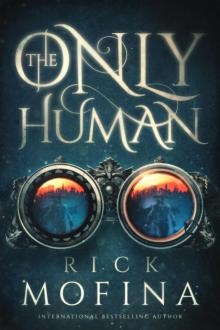 The Only Human
The Only Human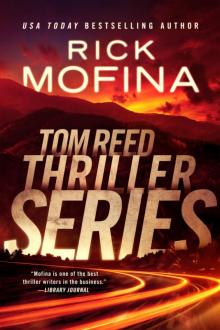 Tom Reed Thriller Series
Tom Reed Thriller Series![[Tom Reed and Walt Sydowski 04.0] No Way Back Read online](http://i1.bookreadfree.com/05/tom_reed_and_walt_sydowski_04_0_no_way_back_preview.jpg) [Tom Reed and Walt Sydowski 04.0] No Way Back
[Tom Reed and Walt Sydowski 04.0] No Way Back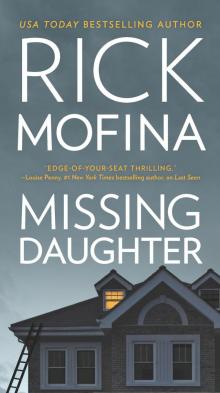 Missing Daughter
Missing Daughter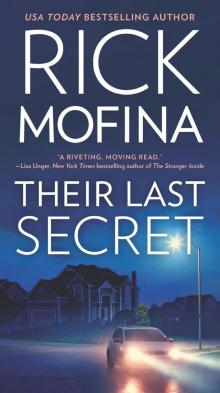 Their Last Secret
Their Last Secret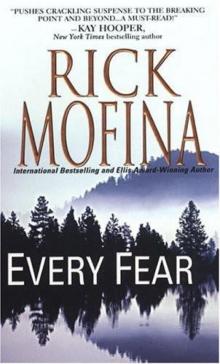 Jason Wade - 02 - Every Fear
Jason Wade - 02 - Every Fear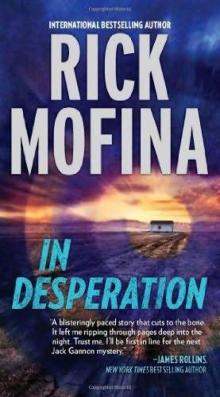 In Desperation
In Desperation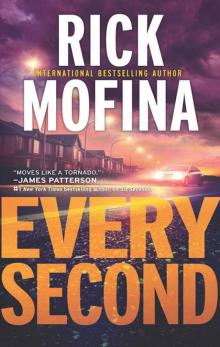 Every Second
Every Second Full Tilt
Full Tilt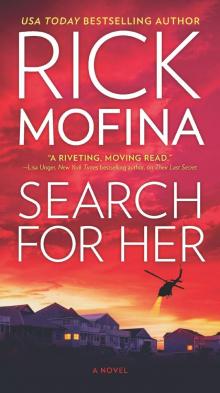 Search for Her
Search for Her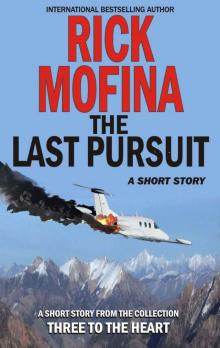 The Last Pursuit
The Last Pursuit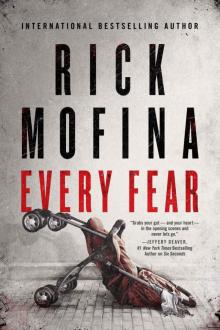 Every Fear
Every Fear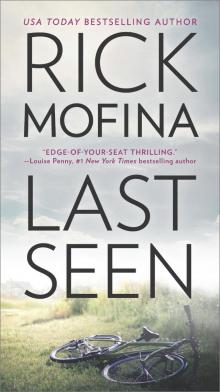 Last Seen
Last Seen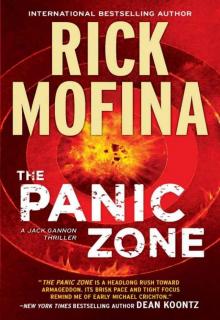 The Panic Zone
The Panic Zone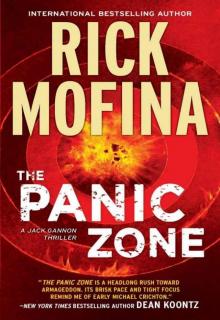 The Panic Zone jg-2
The Panic Zone jg-2 Free Fall
Free Fall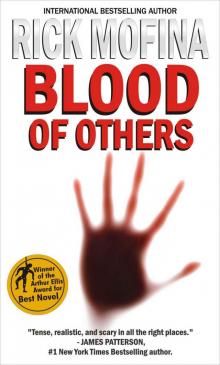 Blood of Others
Blood of Others![[Jason Wade 02.0] Every Fear Read online](http://i1.bookreadfree.com/i1/03/31/jason_wade_02_0_every_fear_preview.jpg) [Jason Wade 02.0] Every Fear
[Jason Wade 02.0] Every Fear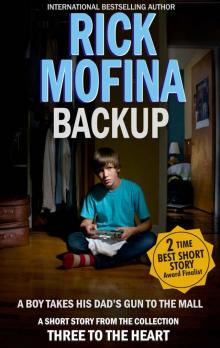 Backup
Backup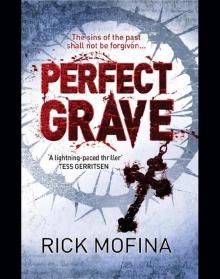 Perfect Grave
Perfect Grave Into the Dark
Into the Dark Whirlwind
Whirlwind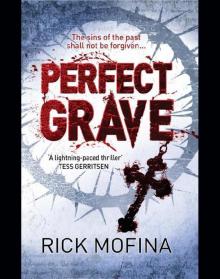 Perfect Grave jw-3
Perfect Grave jw-3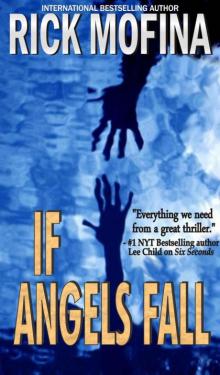 If Angels Fall (tom reed and walt sydowski)
If Angels Fall (tom reed and walt sydowski)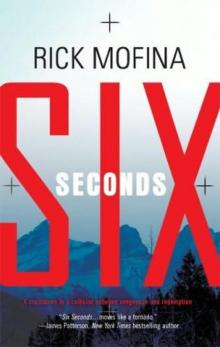 Six Seconds
Six Seconds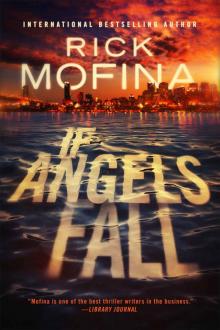 If Angels Fall
If Angels Fall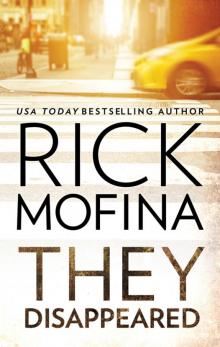 They Disappeared
They Disappeared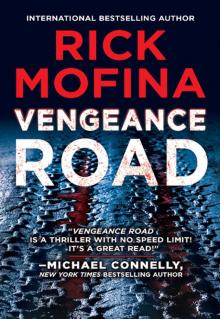 Vengeance Road
Vengeance Road Before Sunrise
Before Sunrise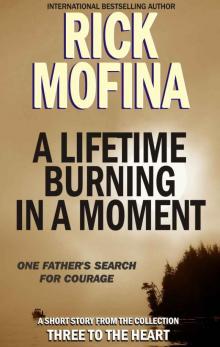 A Lifetime Burning in a Moment
A Lifetime Burning in a Moment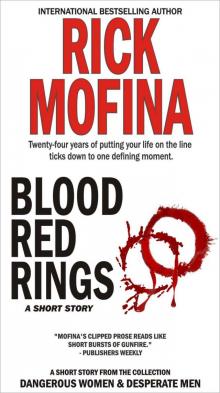 Blood Red Rings (Dangerous Women & Desperate Men)
Blood Red Rings (Dangerous Women & Desperate Men)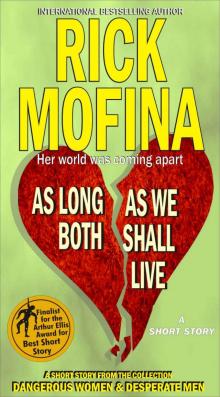 As Long As We Both Shall Live (Dangerous Women & Desperate Men)
As Long As We Both Shall Live (Dangerous Women & Desperate Men)![[Tom Reed and Walt Sydowski 01.0] If Angels Fall Read online](http://i1.bookreadfree.com/i2/04/12/tom_reed_and_walt_sydowski_01_0_if_angels_fall_preview.jpg) [Tom Reed and Walt Sydowski 01.0] If Angels Fall
[Tom Reed and Walt Sydowski 01.0] If Angels Fall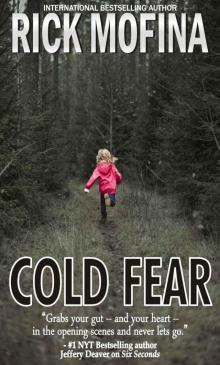 Cold Fear
Cold Fear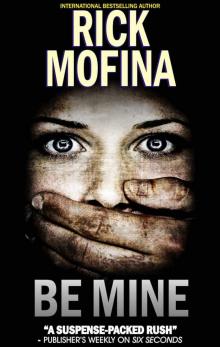 Be Mine
Be Mine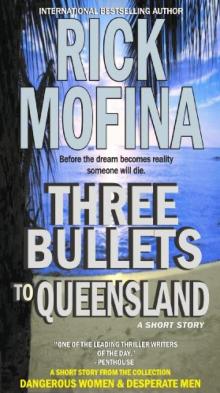 Three Bullets To Queensland
Three Bullets To Queensland